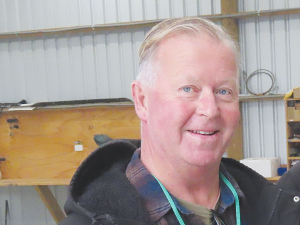Rural Contractors NZ says members are frustrated at having to work through more layers to get visas approved for skilled seasonal machinery operators ahead of the imminent season start. Andrew Olsen comments.
I have been seeing a significant increase in my members asking for assistance of late.
While I try to help, dealing with the daily influx of confused and disgruntled rural contractors asking for help is wearing a bit thin.
We are not an immigration advisory service but we sure feel like we’re paying a price for the lengthy checking and processing times.
I had hoped the second year of the accreditation requirements would have been smoother but it’s not what we’re seeing. We have NZ employers applying for re – accreditation and time frames for this have blown out meaning further delays in being eligible to apply for visas.
Add then the average approval time for the AEWV has blown out from two months to four months and it’s plain to see the temperature rising amongst our members.
The vast majority of businesses can’t afford an Immigration advisor to navigate the complexity of accreditation or visa applications – the AEWV in particular – so there’s a lot of hit and more miss than the previous year.
Read More
I do acknowledge that in response to lobbying Immigration NZ officials and the Government, Immigration Minister Erica Stanford had announced rural contractors could use the Special Purpose or Event class of visa (SPEV).
This had become the ‘go to’ option for members who had not already invested in the AEWV and did not have accreditation. However, in mid- August MBIE advised the SPEV visa was now the SPWV visa (Specific Purpose Working Visa).
This had come with additional conditions including a need to advertise a role for which he says there were no trained and available Kiwi workers. However, around 80% of applications were approved in three weeks and feedback from members indicate the SPWV is currently the preferred visa class.
In discussions the Immigration Minister has emphasised this visa class is a temporary measure prior to the overhaul of the AEWV by Immigration NZ to be in place for rural contractors (and others) to hire overseas labour next season.
The Government has also acknowledged there is a case for looking closely at what a seasonal worker visa looks like.
In our case, many of these workers will return several years in a row, already have a NZ bank account, IRD number and an accredited employer backing their visa so wouldn’t it make sense to design a visa around that?
This is an opportunity for the Government to take pressure off and allow Ag NZ to get on with the business of doubling exports.
The Government must also consider immigration policy changes alongside its review of vocational training. For our members the career pathway is a shambles and we foresee a significant reliance on skilled overseas workers in the mid-term and until vocational education training sorts itself out.
Future training must be focused on providing specific, short courses (micro-credentials) which give the trainee business-relevant new skills.
Rural contractors don’t support having to send workers to polytechnics for training for weeks and months on end. They want their workers to be able to pick up micro-credentials on the job and build these if they wish into a qualification.
Andrew Olsen is Rural Contractors NZ chief executive officer.



















